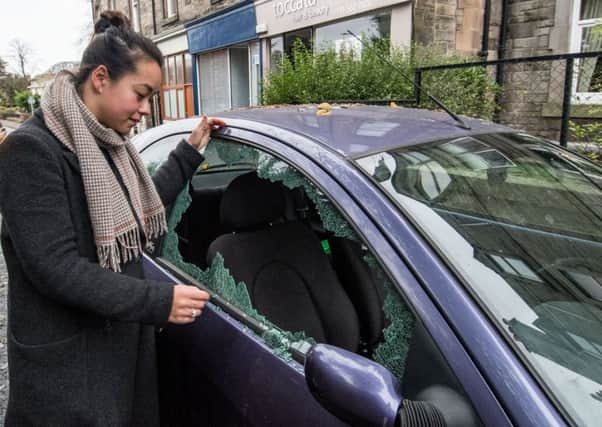Chris Marshall: Police Scotland must not ignore '˜minor' crimes


Our over-worked doctors and nurses would be free to deal with cancer patients and A&E departments could get on with treating heart attack victims or those injured in car crashes.
It’s a vision which would save our stretched health service millions, but one likely to be rejected by anyone who has ever had cause to use our most cherished public institution.
Advertisement
Hide AdAdvertisement
Hide AdYet this is the vision being advocated for our police force, where officers retreat from the communities they are there to serve, allowing them to focus on the big stuff, such as terrorism, cyber-crime and child sexual exploitation.
Kenny MacAskill, Justice Secretary from 2007 to 2014, says the public should no longer expect Police Scotland officers to attend minor incidents.
The MSP-turned-columnist believes this to be the best approach for a service which is projecting a budget deficit of £36 million for the current financial year.
Indeed he seems to have adopted the view of Chief Constable Phil Gormley – who is currently on leave while allegations of bullying are investigated – that in the next few years, officers will be less likely to attend lower-level offences in person.
Mr Gormley has previously gone a step further, suggesting officers would respond in the future based on the “harm” caused by an incident, rather than just the crime type.
It’s the sort of strategic thinking which sounds great in hotel conference rooms and TV studios but makes little sense in practice.
Mr MacAskill uses the example of minor vandalism, saying an officer’s attendance can “no longer be justified”, adding that a police e-mail acknowledgement for the insurance company “will have to suffice”.
The implications this has for an increase in fraud cases not withstanding, there will be occasions where minor vandalism can cause major distress or where there are serious child protection issues relating to the perpetrator.
Advertisement
Hide AdAdvertisement
Hide AdWhat if the minor vandalism is actually offensive graffiti scrawled on the side of a war memorial or the front door of a church, a mosque or a synagogue?
And what if a child caught shoplifting or damaging property is doing so partly because they themselves have been the victim of a crime at home or elsewhere?
Mr MacAskill’s suggestion that the private security industry continues its move into areas traditionally seen as police work is a worrying aside.
In one respect, however, the former Justice Secretary is correct.
He says the police are “run ragged”, struggling, in particular, with the workload caused by cuts to mental health services.
There is no disputing that police officers now face the most varied list of competing demands for their time of any point in the distinguished history of Scottish policing.
But instead of encouraging them to withdraw from view, we should be providing them with the resources needed to do their job.
That may mean more money from the Scottish Government, but it almost certainly means avoiding the sort of profligacy at the top of the organisation so well documented last week in the Scottish Police Authority’s annual accounts.
